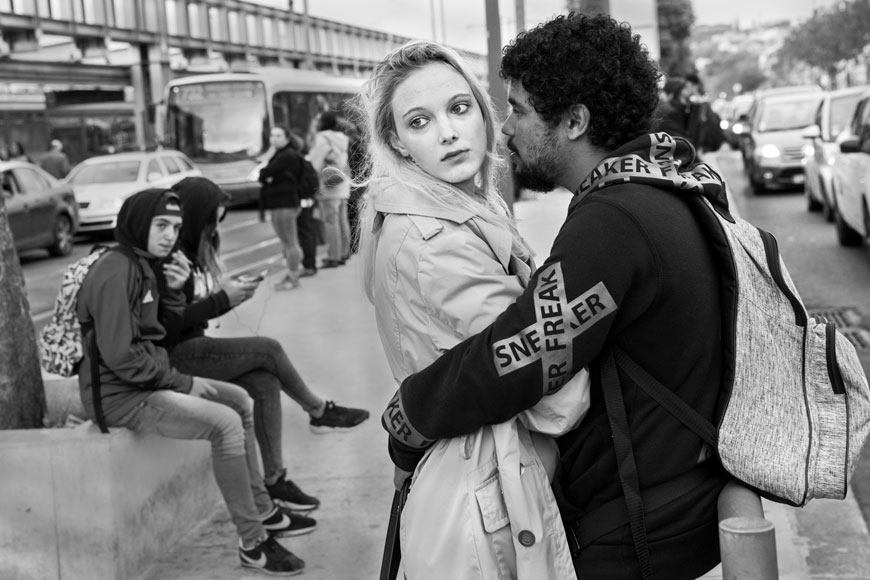The Buzz on Street Photographers
The Buzz on Street Photographers
Blog Article
Some Known Details About Street Photographers
Table of ContentsThe Basic Principles Of Street Photographers The Facts About Street Photographers RevealedOur Street Photographers IdeasThe Street Photographers PDFsMore About Street Photographers
, a genre of digital photography that documents everyday life in a public location. The very publicness of the setting makes it possible for the professional photographer to take honest images of strangers, commonly without their knowledge. Street photographers do not necessarily have a social purpose in mind, yet they like to isolate and capture moments which might or else go undetected.He was affected by several of those that affected the street professional photographers of the 1950s and '60s, he was not primarily interested in recording the spirit of the street., who functioned side by side with digital photographers trying to capture the essence of metropolitan life.

Provided the fine quality of his photographs and the breadth of material, architects and musicians often purchased Atget's prints to use as reference for their own job, though business passions were rarely his major inspiration. Rather, he was driven to photo every last residue of the Paris he liked.
Some Known Questions About Street Photographers.
They expose the city through his eyes. His job and basic understanding of digital photography as an art type acted as motivation to generations of professional photographers that followed. The future generation of street digital photographers, though they likely did not refer to themselves as such, was ushered in by the photojournalism of Hungarian-born professional photographer Andr Kertsz.
Unlike his peers, Brassa used a larger-format Voigtlnder camera with a longer direct exposure time, requiring him to be more computed and thoughtful in his practice than he may have been if using a Leica. (It is thought that he might not have had the ability to pay for a Leica back then, however he did, nonetheless, use one in the late 1950s to take colour pictures.) Brassa's photographs of the Paris abyss lit up by fabricated light were a revelation, and the collection of the series that he published, (1933 ), was a significant success.
Cartier-Bresson was a champ of the Leica electronic camera and among the first digital photographers to maximize its capabilities. The Leica enabled the photographer to communicate with the environments and to record moments as they occurred - Street Photographers. Its reasonably tiny size also assisted the Check This Out digital photographer discolor right into the background, which was Cartier-Bresson's preferred approach
Street Photographers - Questions
It is since of this basic understanding of the art of image taking that he is often credited with rediscovering the tool throughout once more approximately a century given that its development. He took pictures for even more than a half century and influenced generations of professional photographers to trust their eye and intuition in the minute.
These are the inquiries I will attempt to respond to: And after that I'll leave you with my own interpretation of road digital photography. Yes, we do. Allow's kick off with specifying what an interpretation is: According to it is: "The act of specifying, or of making something guaranteed, unique, or clear".
No, certainly not. The term is both limiting and misdirecting. Seems like a street photography must be photos of a roads ideal?! And all street photographers, with the exception of a handful of absolute novices, will totally value that a street is not the vital element to road photography, and in fact if it's an image of a street with perhaps a couple of uninteresting people not doing anything of interest, that's not road photography that's a picture of a road.
He makes a valid point don't you think? While I concur with him I'm not sure "candid public digital photography" will catch on (although I do kind of like the term "honest digital photography") since "road photography" has been around for a lengthy time, with several masters' names attached to it, so I believe the term is right here to remain.
The Single Strategy To Use For Street Photographers
You can shoot at the coastline, at a celebration, in an alley, in a park, in a piazza, in a coffee shop, visit the site at a museum or art gallery, in a metro station, at an event, on a bridge, under a bridge ...
Yes, I'm afraid we worried no choice! Without guidelines we can not have a definition, and without a meaning we don't have a style, and without a style we don't have anything to specify what we do, and index so we are stuck in a "guidelines interpretation genre" loophole! - Street Photographers
Some Ideas on Street Photographers You Need To Know

Report this page